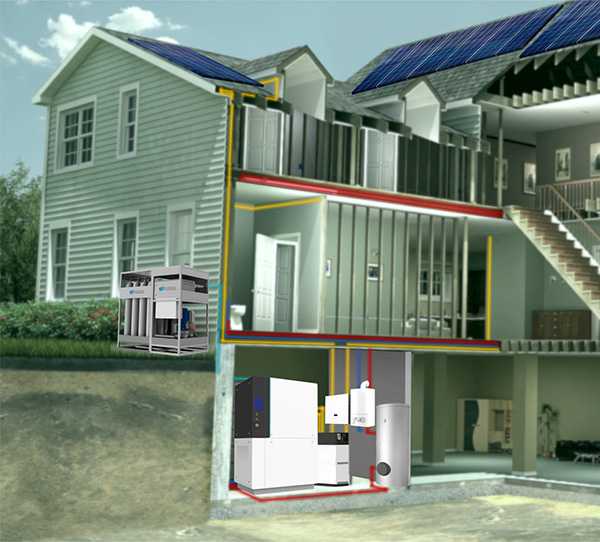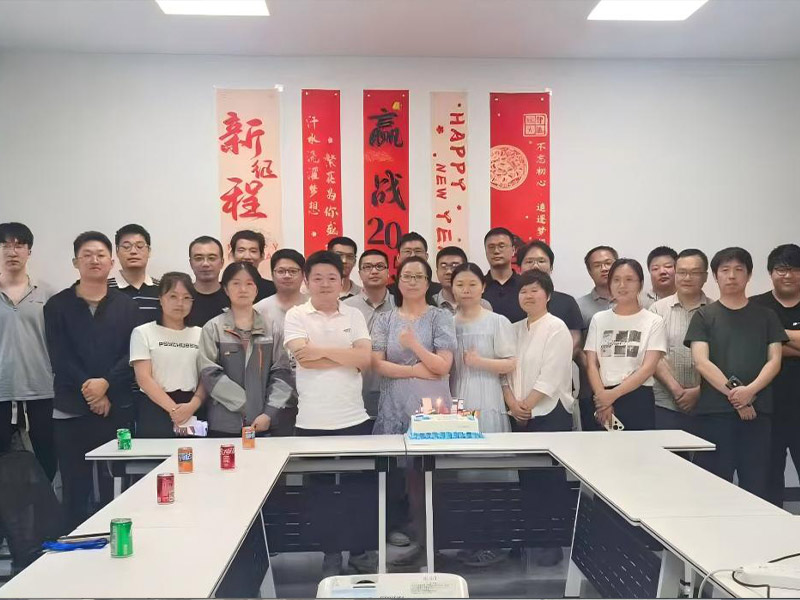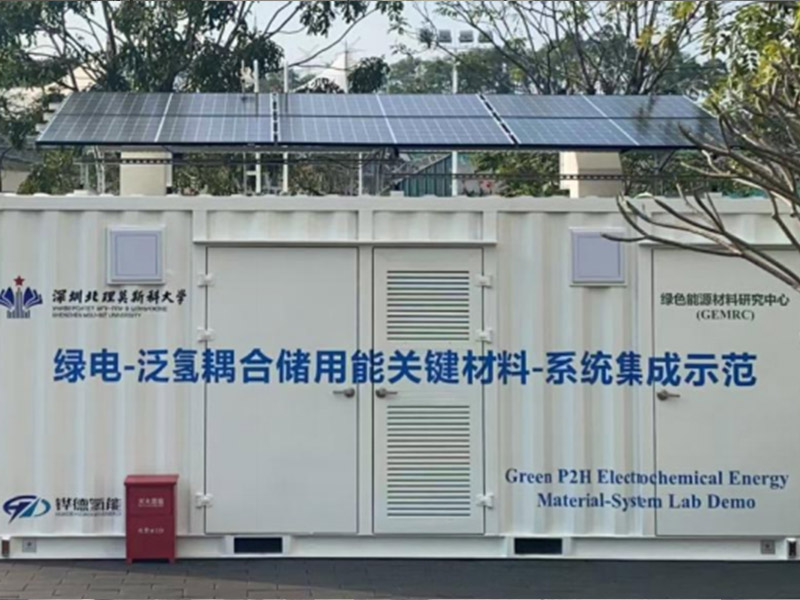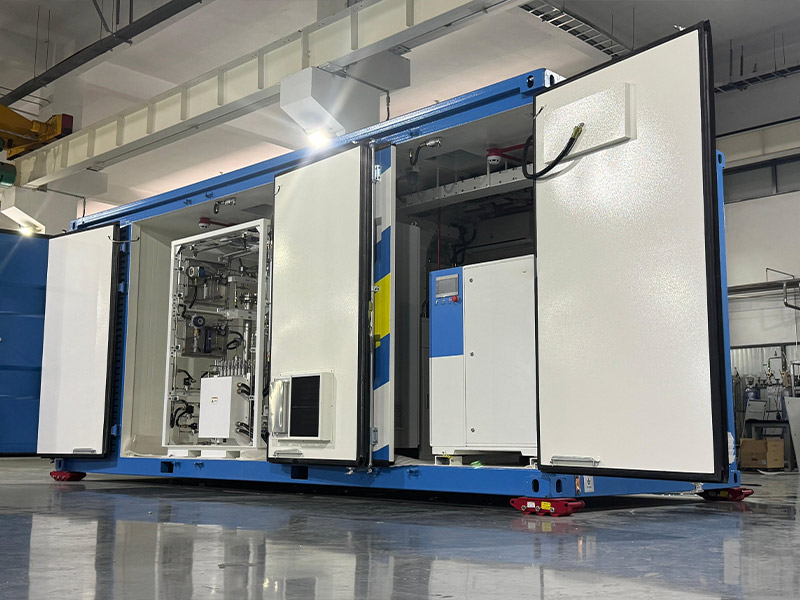The European residential battery energy storage system lacks long-term energy storage capabilities, raising concerns for local customers. They seek stable energy supplies, but battery technology faces challenges such as limited capacity, lifespan, and performance issues. Technological advancements and cost-effective solutions are needed to fulfill long-term storage needs and increase accessibility.Cross-seasonal long-term energy storage is essential for European residential users, enhancing energy independence, utilizing renewable sources, ensuring energy security, and facilitating grid integration. Technological progress is necessary to overcome the limitations of current battery technology and meet user demands.
Imagine a future where your home becomes a self-sufficient power hub, generating and storing clean energy throughout the seasons. In this envisioned future, independent household energy systems will play a crucial role, enabling the harnessing and storage of energy for extended periods, irrespective of the season. The HyESS-R system, developed by Jiangsu HuaDe Hydrogen Energy Technology Co., Ltd., takes this concept to the next level, offering advanced capabilities in long-term and cross-seasonal energy storage.

Can the HyESS-R System Ensure Uninterrupted Power Supply?
Let's delve into the HyESS-R system and understand its functionality in real-life scenarios. Consider your solar panels generating excess energy on a sunny day. The HyESS-R system employs state-of-the-art proton exchange membrane (PEM) electrolysis with a capacity of 0.5 cubic metres per hour to convert this surplus energy into hydrogen. The outdoor storage module of the system utilizes 16 high-pressure gas cylinders with a pressure of 30MPA. The stored hydrogen amounts to 320kWh of electricity and 270kWh of thermal energy, readily available whenever required. Not only that, but when the sun sets or there's a power outage, the stored hydrogen is converted back into electricity through a fuel cell with a power output of 10kW, ensuring uninterrupted comfort in your home. The conversion of hydrogen to electricity occurs via a fuel cell, where a chemical reaction between the hydrogen and oxygen generates electricity, producing only water as a byproduct, making the system completely clean and renewable.
The utilization of hydrogen for cross-seasonal long-term energy storage is a standout feature of the HyESS-R system. Unlike battery storage systems, which may have constraints, the HyESS-R system provides a complementary solution. It enables long-term energy storage, facilitating better management throughout the seasons. Battery storage excels in short-term, high-power storage, while the HyESS-R system excels in long-term storage. This synergy enhances the stability of the energy system, integrates renewable sources, and increases energy independence.
How Important Is Energy Independence for European Residents?
Energy independence is of great significance to European residents. It allows them to have greater control over their energy sources and reduces their dependence on others. This can result in a more stable energy supply and possibly lower costs. In addition, it contributes to the environment by utilizing renewable energy sources.As Europe continues to focus on reducing greenhouse gas emissions, energy independence becomes even more vital for them.
In Europe, the growing demand for cross-seasonal long-term independent energy storage among residential users is driven by several factors. Homeowners aspire for greater energy independence and self-sufficiency, seeking means to store energy generated during the summer for use in colder months. The integration of renewable energy sources necessitates efficient storage solutions to address intermittent supply. The ability to store energy over extended periods aids in making more optimal use of renewable energy and reduces dependency on the grid.
How Does the EU government Stance on Residential Hydrogen Storage Impact the Green Future?
The EU government's stance on residential hydrogen storage is crucial in shaping a sustainable future. Hydrogen storage technology presents a game-changing opportunity in the realm of energy storage, playing a vital role in reducing carbon emissions and increasing the utilization of renewable sources. The EU's support, through government energy subsidies, is essential in driving the adoption of this revolutionary technology and enabling us to move closer towards a sustainable tomorrow. A case in point is Germany, where the government has implemented the KFW(458) subsidy program with the express aim of facilitating the adoption of hydrogen energy storage systems.It provides essential support, driving the adoption of this revolutionary technology.
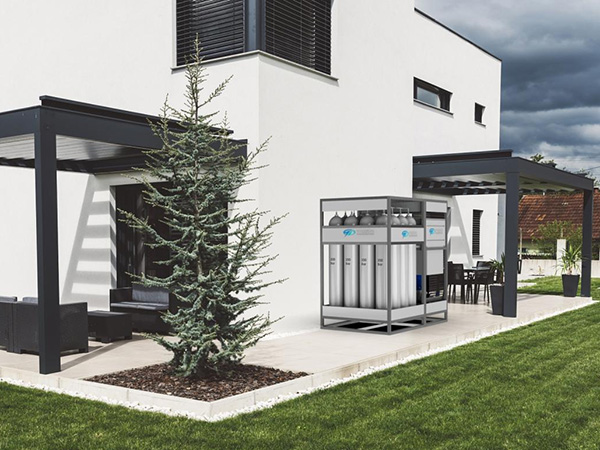
Advances in technology are making hydrogen storage systems more compact, efficient, and safe. Their seamless integration into existing residential infrastructure is facilitated, without the need for substantial modifications. Smart energy management systems that integrate hydrogen storage with other renewable energy sources are also driving the adoption of these systems.With its advanced technology, flexibility, and practical applications, the HyESS-R system from Jiangsu HuaDe Hydrogen Energy Technology Co., Ltd. stands at the forefront of this trend. It presents a promising path towards a more sustainable and energy-independent future. As the market continues to evolve, we can anticipate the wider adoption of household hydrogen energy storage systems, bringing us closer to a greener and more resilient energy future.
